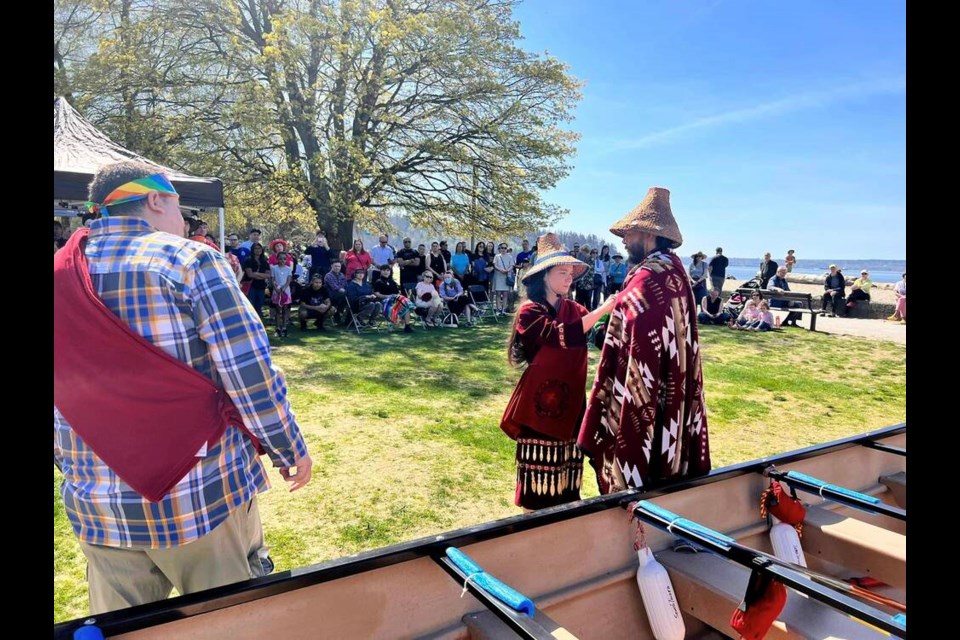The crowd that congregated on West Vancouver’s Ambleside Beach on Saturday afternoon would have been forgiven for thinking it was peak summertime, if the July-like temperatures hadn’t been outshone by the quintessentially spring activity they were all there for.
Members of both the Sḵwx̱wú7mesh Úxwumixw (Squamish Nation) and Tsleil-Waututh Nation joined the police forces of both West and North Vancouver to welcome the return of spring, and with it, the Sema7maka and Ch’ich’iyuy canoes.
“It was a really great turnout. There had been a lot of the public present which was great because there is such a large educational aspect to it, and it means they can learn more about who we are as people,” said Squamish Nation’s Joelle Johnston, who has been skipper for Sema7maka since 2019.
The annual celebration saw Squamish Nation members and Elders awaken the canoes from the rest they had been put under in November. Each were cleansed with cedar boughs following a traditional ceremony with drumming and singing.
Johnston said the event had been particularly moving, as part of the afternoon had been dedicated to honouring longtime canoe member Trevor Jack.
“We gifted him with a paddle as a thank you for all of his years helping us and supporting us, and teaching us too. He has taught us so much,” she said.
Semá7maka, meaning “Snowbird” in Sḵwx̱wú7mesh Sníchim (Squamish language), and Ch’ich’iyuy, are canoes of the Nation and of the West Vancouver police, used to take youth circles, community groups and the public on educational journeys across the waters.
The aim is to help raise awareness of Squamish culture, and strengthen the relationship between law enforcement and those from Indigenous backgrounds.
In 2019 the ‘Semá7maka canoe family’ embarked on their very first journey in the traditional territories of the Tla’amin peoples, located on the Powell River. Since then they have taken groups near and far, from Burrard Inlet to the Adam’s Lake region, north of Kamloops.
This summer, Johnston said she hopes to see more Elders take to the waters and “reconnect with canoes,” which would only make better what is already expected to be a busy season ahead.
Mina Kerr-Lazenby is the North Shore News’ Indigenous and civic affairs reporter. This reporting beat is made possible by the Local Journalism Initiative.



